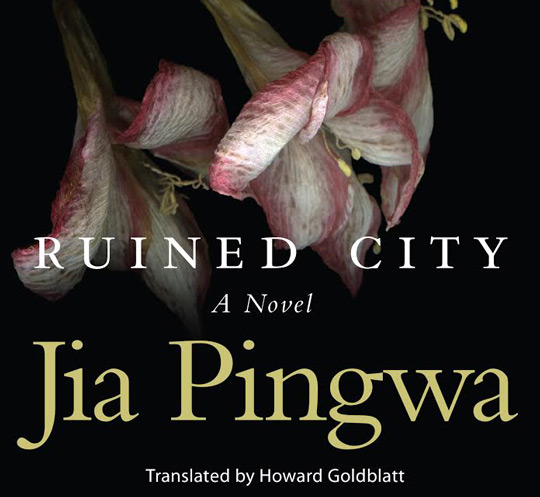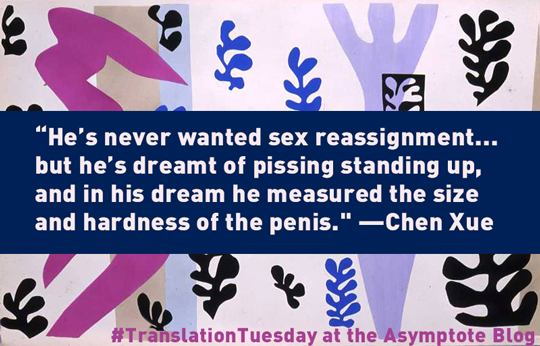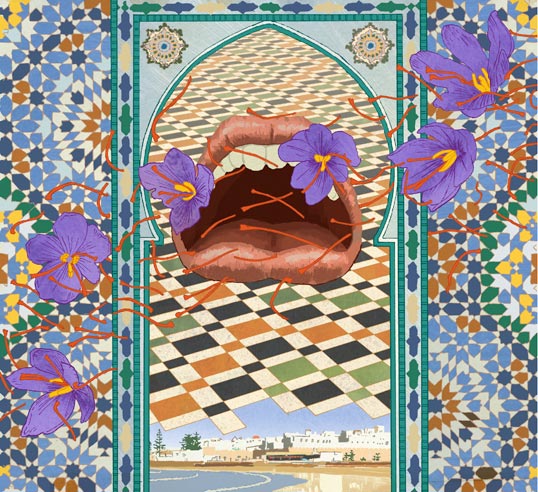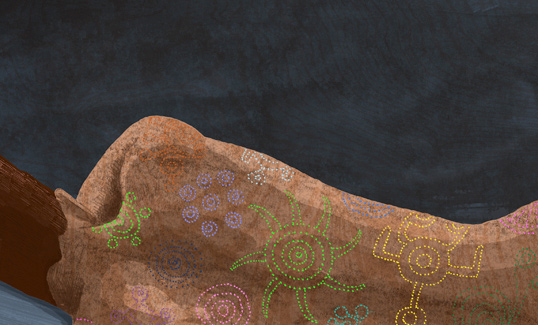This week we are proud to present Spanish lexicographer Sebastián de Covarrubias Horozco’s 17th century text filtered through Janet Hendrickson’s illuminating translation. Of her experimental technique, she explains: “My rule was to follow the order of the original text (in the edition of the dictionary I used), translating entries, fragments of entries, and fragments of sentences that I found interesting and that I felt resonated with each other. Using this method, the original 250 pages corresponding to the letter A were reduced to five.”
A
A
It is so simple to pronounce. It is the first letter man utters on being born. It is pronounced, like the vowels that follow it, by puckering the lips and exhaling. The simplicity of the a is such that its utterance is not denied to the mute, who with the a and the help of their tone, the movement of their hands, feet, eyes, and body make us understand in a moment what the articulate could not; the mute, as they walk together, prattle more than magpies. The a is doctrine, way, eternal bliss. The a, repeated three times, declares the mute’s impotence in speech; for me, mute in what I seek, it means the Father, Son, and Holy Ghost; I implore my God to give me His life to finish this work for His glory and for everyone’s use. I know of no one who has taken on this task, bringing it to the end I seek. A they called the letter of health.
A B C
Means the first beginnings.
ABEJA
(Bee)
Gathering dew from one flower and the next, the bee makes liquor sweet as honey, moiling in its cunning honeycombs of wax. It alone among insects was created for the benefit of man. The bee leads to disquisitions on its choice in flowers, on the craftsmanship with which it makes hexagonal cells, on the clemency of its king. The bee is the symbol of the curious, those who gather sentences as the bee gathers flowers, making a work smooth and sweet. The bee does not procreate through the coupling of male and female, and they are no less fertile for that.
ABISMO
(Abyss)
Infinite congregation of water; depths of the deepest valleys, where vision fades when gazed at from above.
ACÁ
(Here)
Where I am.
AGUA
(Water)
Water swallows land, quenches fire, rises through the air and alters it and lies above the heavens themselves. It raises such a multitude of fish; it allows man to travel a great distance in a short time. Water has the virtue of cooling, cleansing, smoothing. It means the Holy Spirit. It means the wisdom of God, which is Christ. It means the peoples. Artificial waters, water of the angels, distilled with aromatic drugs, roses and the rest, orange blossom, jasmine, lemon blossom, myrtle.
ÁGUILA
(Eagle)
The eagle kills the deer with marvelous guile: filling its wings with earth, leaping over the deer’s head, the eagle shakes dust in the deer’s eyes, by which it blinds the deer and makes it run, until the deer reaches a cliff, where the eagle lets it fall; it kills itself or breaks its legs. The eagle snatches the serpent in its talons and lifts it in the air and tears it to pieces, but the serpent coils around the eagle and catches its wings; it does not let the eagle fly; both fall to earth. The eagle lifts the turtle in the air and drops it on a crag. The eagle is not afraid of lightning; when it thunders, the swan hides between the reeds and rushes of the lakes. The eagle means Christ among men, who is like the eagle, queen among the birds, for the flight by which Christ descended to the innermost part of the Virgin Mary’s heartstrings. Christ is the eagle with sharp vision; He beholds the sun.
AIRE
(Air)
The wind, being moving air or being caused in air. It would take too long to declare here how and where and from what are created the mist, the dew, the rain, the snow and hail that fall, the thunder and lightning, comets, firebrands, the exhalations, vortices, and yawnings of the sky.
AJO
(Garlic)
Garlic is so well-known that one need not describe it. Garlic is not a food for courtly people. The leopard abhors the smell of it; if the leopard’s lair is scoured with garlic, the leopard forsakes it. Garlic rubbed against the trunk of a tree keeps caterpillars away.
ALBA
(Dawn)
What is that? Nothing but the dawn as it walks among the cabbages.
ALGO
(Something)
We ask, “Is it something?” We answer, “It is nothing.” A term that comprehends all that can be.
ANDRÓGENO
(Hermaphrodite)
Some say that women have three wombs on the right and three on the left and one in the middle; some wombs create males, the others females, and the one in the middle hermaphrodites. And others attribute even more wombs to women, and many allow for none of this.
ANILLO
(Ring)
Rings were worn on the finger closest to the pinkie on the left hand because anatomists found there a delicate nerve that runs from that finger to the heart; by it gold and stone alike communicate their virtue, by which they comfort.
APIO
(Celery)
The symbol of sadness and weeping.
ASNO
(Ass)
It makes no noise, except when it brays, at which point it is insufferable. A child can take the ass where he wants; the ass brings us bread and wine; it pulls the waterwheel; it carries the wheat to the mill; it cleans the house and dungs the fields; sometimes it plows; it threshes in season and harvests grain; it has no bile. The ass seems inept for war, but some nations have used it in war; the asses of Palestine were nimbler than horses. Its head, affixed to a sown field, not only shoos birds but fertilizes the land. They make sieves to sift wheat from its hide. A hard callous grows on asses’ knees; mixed with aged oil this callous is so potent that when one anoints oneself with it, even if one is a woman, a beard will grow there.
ATEO
(Atheist)
He is ungrateful.
ATOMO
(Atom)
Those little specks that float in the air and are perceivable only through the sunbeam that passes through a chink in the window.
***
Image credit: Portrait of the author by Jeronimo Jacinto de Espinosa
For more delightful experimental translations like this, check out our newly released Winter issue, featuring Browyn Haslam, Martin Rock, and Joe Pan.
Sebastián de Covarrubias Horozco (Toledo, 1539–1613) was a Spanish humanist and priest, once chaplain to King Phillip II. In 1605 he began to write the Tesoro de la lengua castellana o española [Treasure of the Castilian or Spanish Language], published in 1611, a dictionary of the Spanish language, encyclopedic in scope, that was among the first monolingual dictionaries of a vernacular European language. Covarrubias is also the author of the Suplemento, a supplement to the Treasure, Emblemas morales [Moral Emblems], published in 1610, and Tratado de cifras [Treatise on Ciphers], now lost.
Janet Hendrickson translates from Spanish and Portuguese. She translated The Future Is Not Ours (Open Letter, 2012, ed. Diego Trelles Paz), an anthology of stories by Latin American writers born since 1970, and her translations of fiction and essays have appeared in publications including n+1, The White Review, and Granta. She earned an MFA in nonfiction writing from the University of Iowa and is currently a PhD student in Hispanic literature at Cornell University.














